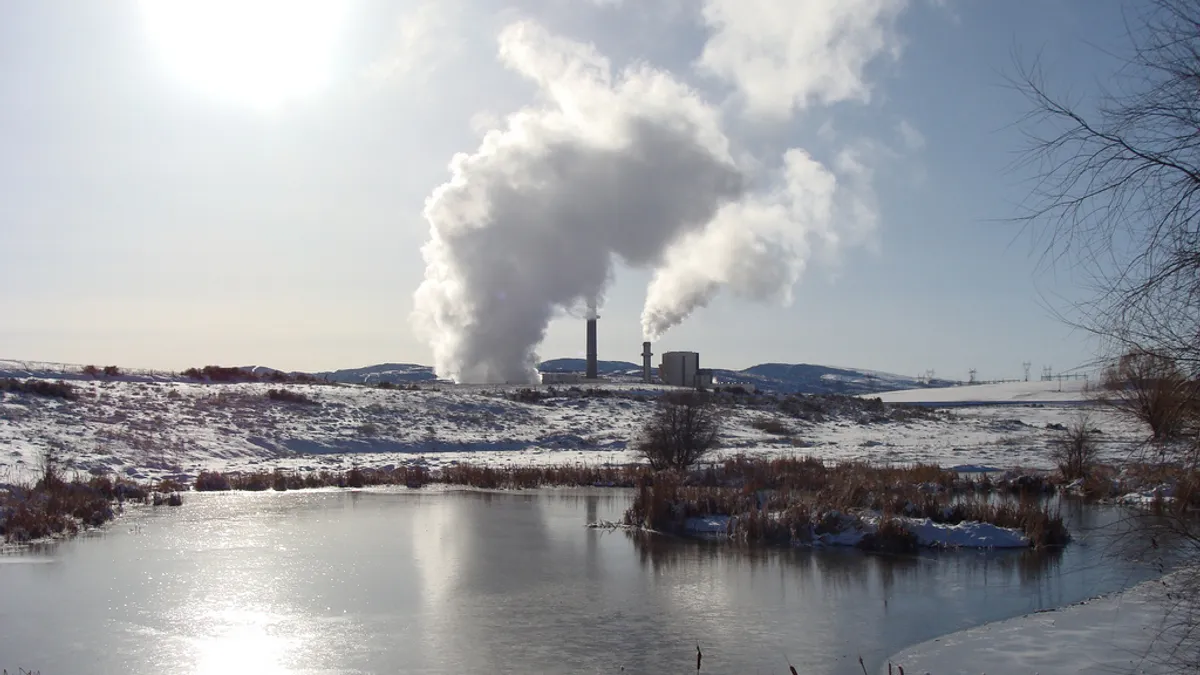Dive Brief:
- A settlement between the Pennsylvania Department of Environmental Protection (DEP) and a group of environmental advocates could result in lower toxic emissions being released into waterways from 10 coal plants in the state.
- Led by the Sierra Club, conservationists filed a lawsuit last year that alleged certain coal-fired power plants were operating under old and outdated water permits. NPR reports one of the plants' permits expired 17 years ago.
- The DEP will work to issue new permits by March 2019, and if it fails, the department will work with the Sierra Club "in good faith to reach an agreeable resolution." The department will provide a status report every 60 days on its efforts.
Dive Insight:
Under the settlement, which must be approved by the Commonwealth Court of Pennsylvania, state regulators would begin issuing draft permits almost immediately. Three would go out in an initial batch next week, including one to the 565 MW Cheswick Generating Station owned by NRG.
In total, 10 plants would receive new authorizations, called National Pollutant Discharge Elimination System (NPDES) permits.
In addition to Cheswick, the settlement includes: Brunner Island, Montour Steam Electric Station, Keystone Generating Station, Ebensburg Power Company, Conemaugh Generating Station, Homer City Generating Station, Cambria Cogen Company, Bruce Mansfield Generating Station and Colver Power Plant.
FIrstEnergy's three-unit Mansfield facility is the largest, with a nameplate capacity above 2,700 MW. In 2013, it made the top 10 in a report from the Environment America Research & Policy Center identifying the nation's "dirtiest" coal plants.
The last of the 10 draft permits is due to be issued Sept. 30. The settlement notes, "it is the Department’s current intent, and it will use its best efforts, to issue final NPDES Permits for these facilities by the end of March 2019."
The lawsuit was brought by the Sierra Club and the Lower Susquehanna Riverkeeper, with PennFuture and the Law Office of Howard Crystal acting as the groups' attorneys. They told the court that the federal Clean Water Act mandates water permits be updated every five years, to ensure the plants are utilizing the latest emissions control technology.
PennFuture’s Vice President of Legal Affairs George Jugovic Jr. said coal-burning power plants are among the state's largest polluters, but the CWA was "designed to compel industries such as this to adopt new technologies that would clean up our water as time progressed. ... This mechanism completely fails if the state does not uphold its responsibility of issuing timely renewal permits."














